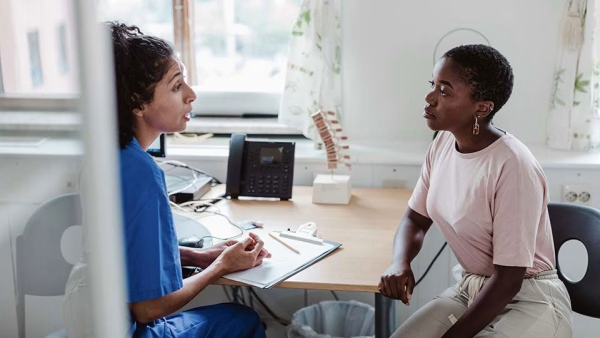Finding a great specialist, it’s all about knowing what to ask
Here are eight tips for finding a great specialist


You’ve made an appointment with your GP to discuss a serious health concern and it’s likely you’ll be leaving the practice with a specialist referral in your hand. But, how do you find a specialist? How do you know if they’re any good? How do you know if they’ll charge you out of pocket expenses?
All too often, patients forget that they have control over which specialist they visit – and not only can choosing the right specialist save you time and money, but it also means you have the power when it comes to your health.
At nib, we’re passionate about making sure Aussies have all the tools they need when it comes to managing their health, so we’ve put together eight questions to help you find a great specialist.
1. Ask for more than one specialist
Before you leave your GP, ask them for a list of recommended specialists. Although many GPs will have one key specialist they tend to refer patients to, it’s important to get a few options – and remember that your GP referral can be transferred to whichever specialist you choose, so long as they’re in the same speciality field.
Related: Can I take my referral to any specialist?
Your GP referral can be transferred to whichever specialist you choose as long as they’re in the same speciality field
2. Ask your health fund
At nib, we’re here for you all the time, but especially when you need us most. Not only can we confirm what you’re covered for, but we can also let you know the average out of pocket expenses for your procedure and tell you which local specialists we have agreements with. Give our team of health insurance experts a call on 13 16 42 to discuss.
Regardless of what kind of specialist you’re looking for, we can help. Our Find a Provider service allows you to search for a specialist in your local area.
3. Ask about Clinical Partners
For those who require a hip or knee replacement, the financial stress can be daunting; that’s why we’ve been working hard to develop and expand our Clinical Partners program. It's our network of experienced orthopaedic surgeons, who have committed to performing hip and knee joint replacement surgery with no out of pocket expenses. The Clinical Partners program is currently available in most locations across Australia. You can search our network of Clinical Partners to find one closest to you.
Check out our article, Planning a hip or knee replacement? How nib’s Clinical Partners program can help for more information.
4. Ask about availability
Next, it’s time to shortlist a few specialists and start making some phone calls. Ring their offices and ask for their availability, wait-list times, the hospitals they work from, their experience and estimated appointment costs.
5. Ask about the treatment
All too often when it comes to our health, we can take the expert’s advice without question, but it’s essential that you understand and are confident in the treatment options you’re given. That’s why it’s so important that you ask your specialist questions about options, risks, recovery times and financial costs.
Before you head into an appointment, jot down some questions you might have – and don’t be afraid to speak up!
Related: 7 questions you need to ask your doctor to avoid unnecessary surgery

6. Ask about alternatives
If you need a helping hand to manage your joint pain, weight, diabetes, heart health, anxiety or depression, you may benefit from nib’s Health Management Programs at no additional cost for eligible members.*
These programs typically include expert health coaching and additional services with the goal of supporting members with or at risk of preventable hospitalisations as a result of chronic disease.
7. Ask about costs
There’s nothing wrong with questioning the fees associated with your proposed treatment plan.
At nib, we offer a MediGap scheme to members, which might cover all of the extra costs that a doctor or specialist may charge. Specialists can choose to participate in the MediGap scheme on a case-by-case basis, so it is important to check with your specialist whether they are prepared to charge you the MediGap fee for your procedure.
We recommend that if you’re going to hospital, you receive informed financial consent – this is a breakdown of expected costs of your procedure and will include the estimated fees of other specialists involved in your treatment too, like anaesthetists and pathologists.
If you have concerns about the other health professionals who are listed on your informed financial consent, discuss this with your specialist to find out your options.
8. Ask around
Last (but not least); ask friends and family members if they’ve had experience dealing with the specialist you’re considering or if they have any recommendations.
Finding a specialist that you can trust is essential – because your health is in their hands! If you have further questions about your specialist, or you want to review your policy, call 13 16 42 or visit member account.
* Available to eligible nib members who’ve held Hospital Cover for 12 months and served their relevant waiting periods. Additional criteria vary according to each program.
Maximise your health insurance benefits
Get the most bang for your buck from your health cover.
A guide to seniors health care cards in Australia
Seniors health care cards can help offset some of your healthcare costs.
Changing your excess: How to reduce the cost of your health insurance premium
More options when it comes to your maximum excess limits




